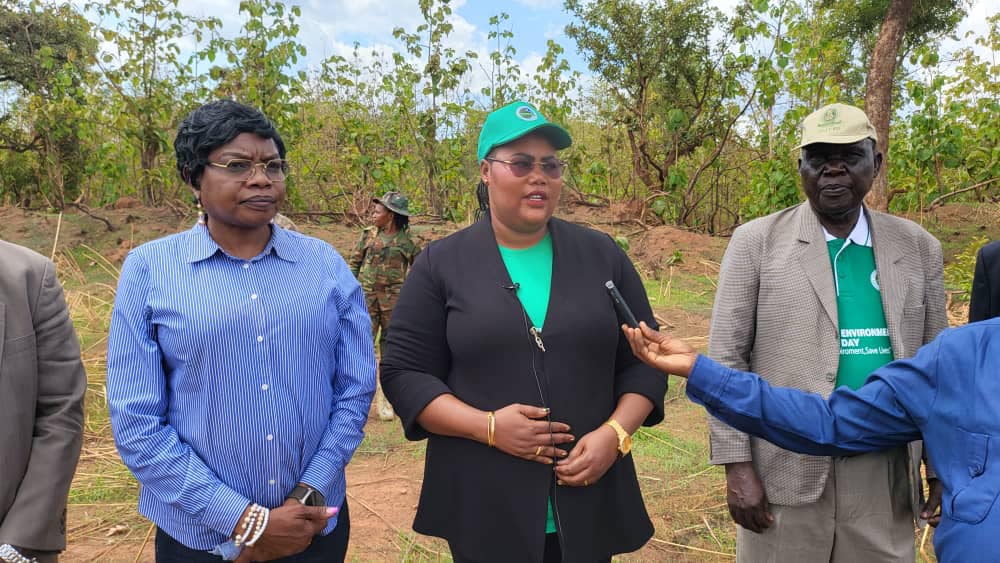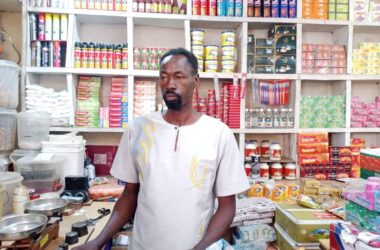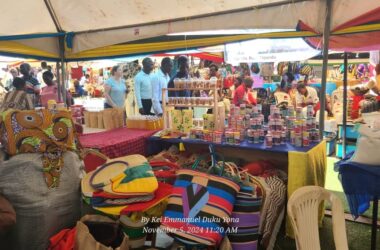By William Madouk
Environment and Forestry Minister, Josephine Napwon, jetted to Western Bahr El Ghazal State to assess sprawling teak forests in order revamp and lumber it to generate income to the government.
The United Nations Environment Program (UNEP) estimated in 2007 that the teak, if sustainably harvested, could generate up to $100 million, a year in export returns for South Sudan.
Napwon led a delegation of technocrats on Monday for s visit and to assess damages caused to the teak plantations as well as finding ways for its restoration to stimulate economic growth in the country.
“We have started with Western Bahr El Ghazal state-Wau because it has 13 big Teak plantations which were totally destroyed. We managed to visit some of them, and the damage is 100%,” she added.
Mrs. Napwon also revealed her blueprint to rehabilitate all the National Reserve Plantations in all the states.
Teak plantations that were planted nearly a century ago are fast disappearing in South Sudan as timber companies take advantage of the country’s chaos to illegally extract large amounts of wood.
Mrs. Napwon also met with officials of the state ministry of Agriculture, Environment and Forestry to understand their areas of needs and share some of their achievements and challenges.
“We had picked few numbers of things that the National Ministry will be doing and one of it is Capacity building. We will continue the exercise as part of our mandate to all the states,” she noted.
Minister Napwon further cited that; she will soon visit the oil-producing areas to assess alleged pollution.
On her part, the governor of Western Bahr El Ghazal state, Sarah Cleto was perplexed of depletion of some forest plantations they visited.
“We visited Jebel Teak (Tonj-1) and Nyinakok reserves of Jur River County. The two forests were completely damaged, and the ministry will work on rehabilitation plan,” Mrs. Cleto noted.
Washington-based research group C4ADS, which uses publicly available data to analyze illicit transnational networks, examined trade data to document the export of around 100,000 tons of South Sudanese teak from January 2018 to March 2019.
The report found that graft and a poorly regulated logging trade, meaning that the government, the military, and other armed groups are skimming profits off South Sudan’s portion of the global teak trade.
South Sudanese teak, worth over $30.5 million went to India, the world’s biggest teak importer, according to Indian trade data cited in the report.
That’s about half of the South Sudanese teak trucked through Uganda in 2018, the report said.
South Sudanese teak also goes to Vietnam, the United Arab Emirates, Kenya and China, the report found.
According to the report, it was impossible to state the total amount of South Sudanese teak exported last year, because of gaps in import-export data.
British colonialists aided planting of South Sudan’s teak forests in the first half of the 20th century.
The attractive tropical hardwood is highly sought-after by furniture makers.



